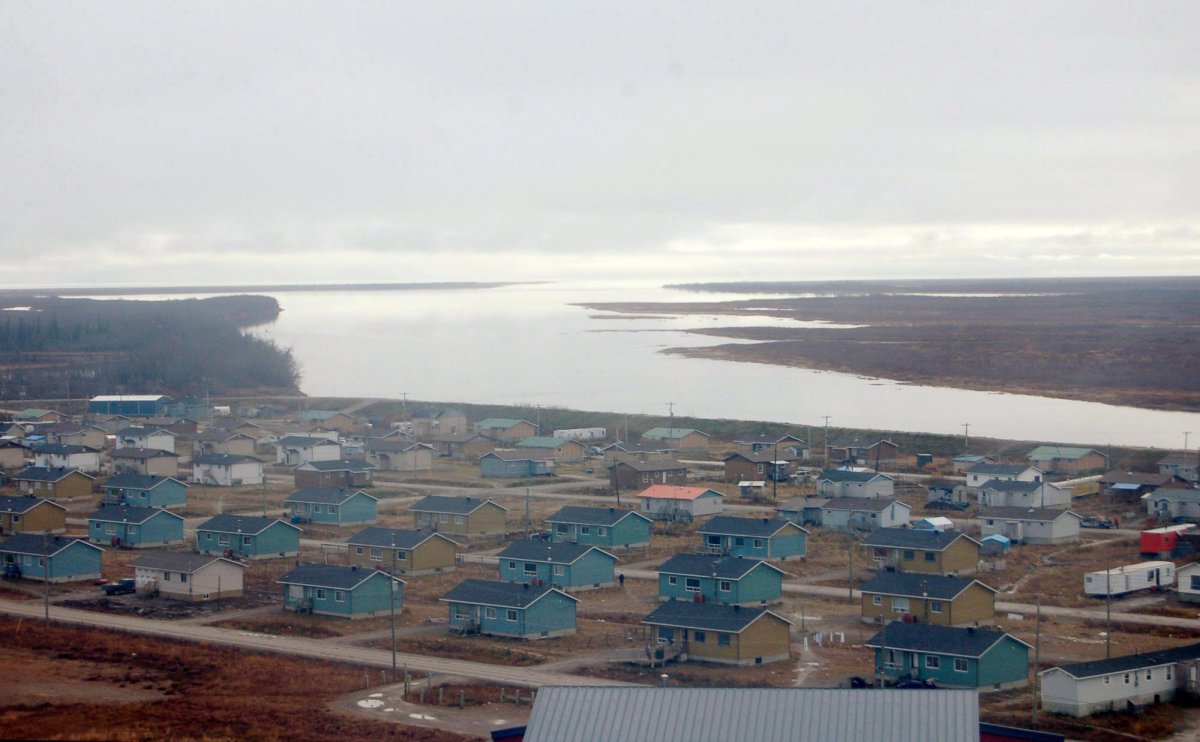The chief of a remote northern First Nation that was evacuated to other areas of Ontario this week due to flooding concerns, said the arrests of two evacuees on Wednesday were related to the stress put on members of the community from the relocation.

About 1,900 residents of the James Bay community of Kashechewan have been relocated over the past two weeks to areas such as Kapuskasing, Greenstone, Wawa, Smooth Rock Falls and Cornwall, Ont. due to the threat that the rapidly rising Albany River posed to the community.
Chief Derek Stephen said the evacuation process has had a negative impact on community members because they have been forced to leave in different phases, often breaking up families.
“There is a lot of stress in regards to being displaced from family members,” Stephen said.
“Due to the urgency of the evacuation, people just got scattered all over the place without going with their families.”
Stephen said that Stage One of the evacuation focused on vulnerable populations, while Stage Two evacuees were left behind until the initial wave of evacuees had been successfully relocated.
“Those are the ones who usually end up elsewhere, without their families … but it is unfortunate that these things happen and I think it’s mostly due to stress and being displaced from families,” he said.
“People have better control when they’re in one area with families and they’re able to look after each other, but I think it would help if the federal government were on our side and start talking about the relocation for the community.”
WATCH ABOVE: Charlie Angus slams Feds for handling of Kashechewan flooding

Get daily National news
On Wednesday, two Kashechewan men were charged with unrelated crimes by the Ontario Provincial Police (OPP), just days after the evacuation.
An unidentified man was charged with assault causing bodily harm in Wawa, Ont. in an alleged domestic dispute incident that left three people in hospital with serious injuries, but a publication ban is in effect on any more details related to the case.
Police in Greenstone, Ont. also charged 24-year-old Jimmy Wesley with break-and-enter and trespassing after he allegedly entered a residence and broke in to a trailer.
Greenstone OPP Staff Sgt. Carl Pettigrew said he didn’t believe the incident was directly related to the evacuation.
“If you have an increase in population you can expect that other things go up in accordance with that, that’s just the way it is. If you have more people, you can expect to have more issues,” he said.
“I certainly wouldn’t paint that on the rest of the community who are very good and in fact quite a friendly bunch of people and we were happy to have them here.”
This is the fourth consecutive year that the Kashechewan First Nation has been evacuated due to flooding concerns at a cost of about $20 million each time, Stephen said.
READ MORE: Northern Ontario First Nation community begins evacuation due to flooding
“Today the government has spent about $70 to $89 million in evacuation costs,” he said, adding that it would cost an estimated $750 million to relocate the community permanently to another location away from the river.
Stephen said the evacuations can lead to familial problems that are a direct result of the stress and uncertainty of the situation, especially for students.
“The kids are the ones that are really affected by all of these evacuations because they’re unable to complete their school year,” he said, adding that only one student was graduating high school this year when usually the number was between 10 and 14.
“The students, their self-esteem is down when these things occur and without a lot of time to complete their school year it becomes stressful and they just turn to drugs and alcohol to fill that void.”
Stephen said he expects the majority of community members to return to Kashechewan within “a matter of weeks,” adding that there are about 400 additional people who were displaced from flooding last year that remain in hotels in Kapuskasing and he has no idea when they’ll be able to return to the community.
A statement from the office of Minister of Aboriginal Affairs and Northern Development Bernard Valcourt released Friday said that they have provided funding for an emergency preparedness coordinator to help communities in the region prepare and manage potential spring flooding, in addition to providing funding for the Ontario First Nations Technical Services Corporation for emergency preparedness and training.
“Our priority right now is to ensure the safety of all community members. That’s why we worked in collaboration with the band council and the province to evacuate the residents,” a statement from the office of Minister of Aboriginal Affairs and Northern Development Bernard Valcourt released Friday said.
“We will continue to work with Kaschechewan First Nation and all partners to keep community members safe.”



Comments